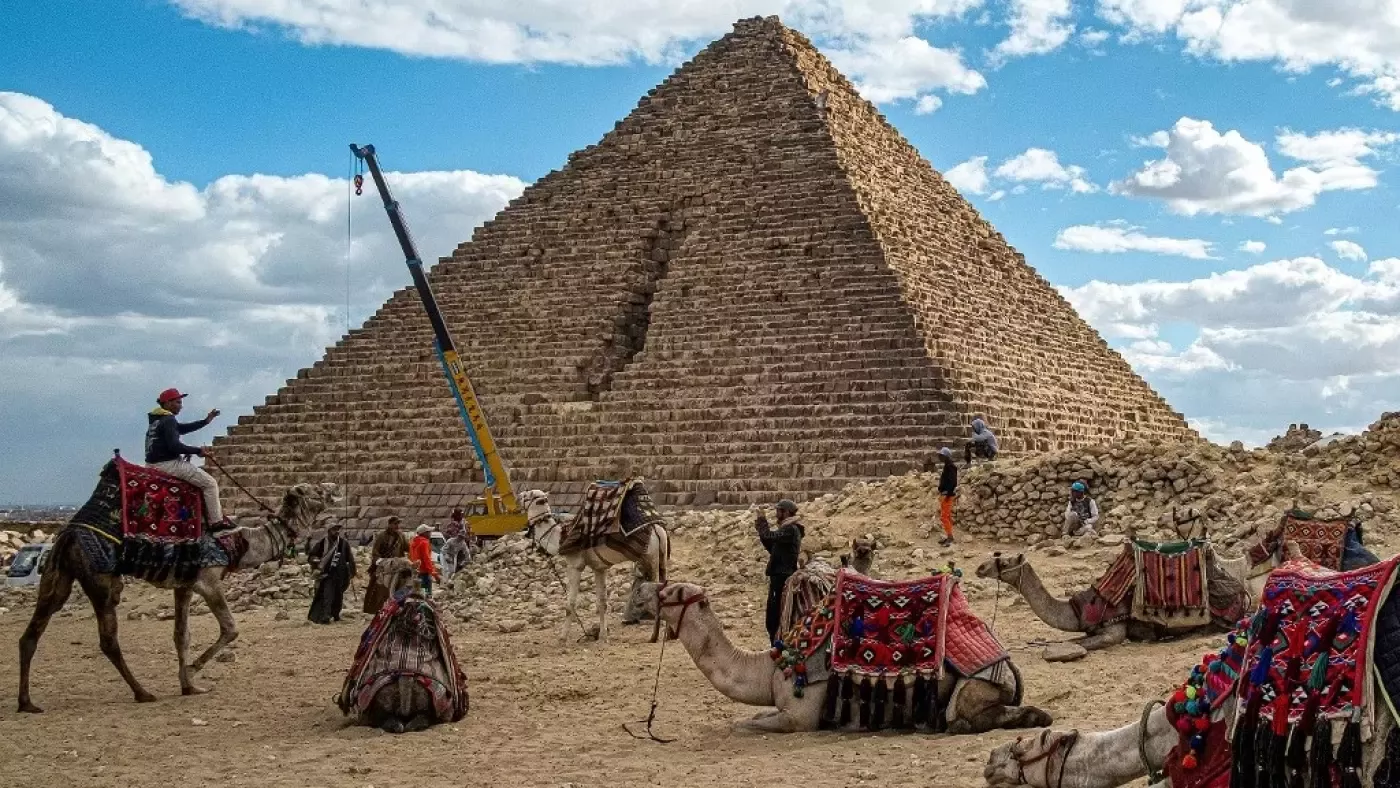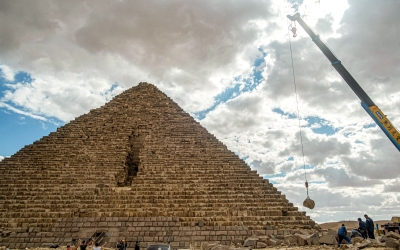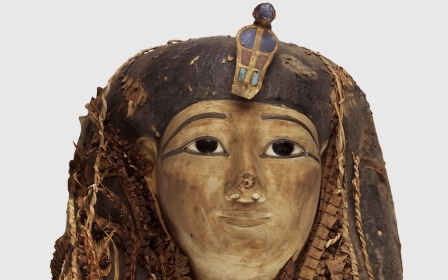Egypt will not cover Giza pyramid with granite blocks following expert report

The Egyptian government has reversed a plan to restore the smallest of the three main pyramids in Giza, after a committee of experts recommended against any change to its current shape.
“Today science won,” Monica Hanna, one of the scientists who mobilised against the original plan, said on Thursday.
“I thank every single person who stood up for the right to protect Egyptian heritage,” she wrote on X.
In January, the Egyptian archaeological community was stunned after a senior official announced he was overseeing a plan to reconstruct the outer layer of the Pyramid of Menkaure using existing granite stones scattered around the pyramid or buried underground.
In one video, Mostafa Waziri, the secretary-general of Egypt's Supreme Council of Antiquities, hailed it as the "project of the century", with workers setting blocks of granite on the base of the pyramid.
New MEE newsletter: Jerusalem Dispatch
Sign up to get the latest insights and analysis on Israel-Palestine, alongside Turkey Unpacked and other MEE newsletters
Waziri, who headed an Egyptian-Japanese mission tasked with the now halted project, said the aim was to reconstruct the granite layer that encased the pyramid when it was originally built thousands of years ago. He said work was set to last for three years and would be "Egypt's gift to the world in the 21st century".
Conservationists and Egyptologists opposed the plan, saying it was approved without consultation with experts, and warned it would violate international conservation standards and conventions.
In an apparent reaction to the criticism, the Ministry of Tourism and Antiquities commissioned a scientific committee last week headed by archaeologist and former minister Zahi Hawass to evaluate the plan.
Hawass’s team included six senior scientists and experts from Egypt, the United States, the Czech Republic, and Germany. Their findings are binding, said Hawass.
The report, according to a government press statement, highlighted the committee's unanimous decision not to reinstall any of the granite blocks around the Menkaure Pyramid.
“The committee emphasised the need to preserve the current state of the pyramid without any additions due to its exceptional global archaeological value,” according to the statement from the State Information Service.
“The original covering of the pyramid can be inferred through the existing seven rows of limestone blocks on the pyramid's body for thousands of years.”
"The committee emphasised the impossibility of determining the original and exact location of any of these granite blocks on the pyramid's body. Reinstalling them would cover the existing evidence of ancient Egyptian construction methods for the pyramids," it added.
Middle East Eye delivers independent and unrivalled coverage and analysis of the Middle East, North Africa and beyond. To learn more about republishing this content and the associated fees, please fill out this form. More about MEE can be found here.





